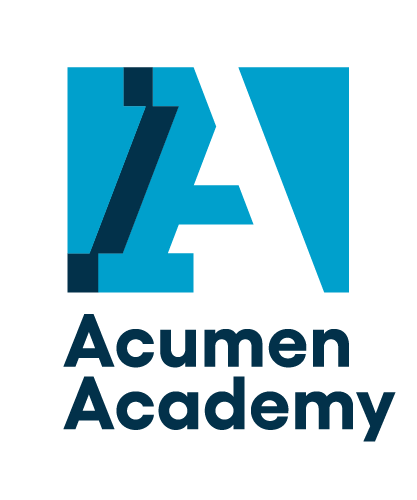Tips for building relationships that foster repeat donations
Explore practical approaches to cultivating donor relationships through engagement, trust, and collaboration, turning supporters into long-term partners who amplify your impact
Featured speakers

Kevin Munday
United Kingdom Acumen Fellow

Zoya Siddiqui
Development & Partnerships, Acumen

Kevin Munday
United Kingdom Acumen Fellow

Zoya Siddiqui
Development & Partnerships, Acumen
Transcript
Kevin Munday, Chief Executive, City Year UK
Introduce donors to beneficiaries and foster engagement
I've learned a few strategies that are helpful in building and then nurturing relationships.
Firstly, try to introduce them to your beneficiaries. It becomes harder to say no once they meet the people who benefit from your work.
In our experience over the last few years, very few corporate supporters will now give us a donation without engagement opportunities. I think for their workforce now, particularly younger workers, they're looking for ways to involve them in things beyond their day-to-day desk job.
Having opportunities where employees can come out, see our work and support us become really, really key when they're making decisions about who to support. But that's good. We find that their time is almost as useful as the money. And the secret is finding things that they can do and which you also want.
Year-round stewardship and honest communication
Secondly, think about year-round stewardship. So it doesn't feel like a transactional relationship that you try to renew once a year, but it's actually a more ongoing dialogue.
And then thirdly, be honest and open both about what's going well, but also the things you're learning. That way you gain trust and an organization is more likely to stick with you even if sometimes the work feels harder.
In my experience, it's easier to retain a partner than to recruit a new one. So I find it useful to start with something small, some quick wins, where both you and the partner can get to know each other and grow in confidence. But you can always then go back and ask for more, and over time, grow partnerships so they become bigger and more strategic.
Zoya Shabir Siddiqui, Development and Partnerships Manager, Acumen
Leverage thought leadership
I think in terms of building and then subsequently maintaining those relationships, I think ensuring that you can come together and share some of the work on a wider platform and invite them to be a part of that thought leadership as well. And a lot of partners really appreciate that, the opportunity to maybe co-write, co-develop, or lead on certain initiatives.
Value partners beyond their wallets
Ensure that the partner knows that they are valued beyond just the funding. So yes, funding is very important, especially if you're in a startup stage as well. Funding will always be important as you move to scale. However, ensuring that you have partners that strategically back you, that value your work, that will actually go out and speak about your work with other partners in the same way that happy customers will refer you to new customers, and that will be your greatest source of expansion, one could say.
The same goes for partnerships as well. A very happy partner that you have cultivated, nurtured on a regular basis, they will go out and cultivate new partnerships for you proactively, and that will be your source of strength when it comes to opening up new business.
Key takeaways
Find ways to show donors your work up close
Communicate regularly to build trust
Come together with partners on thought leadership initiatives to deepen relationships
Value your partners’ contributions, and leverage their support to find new partnerships
